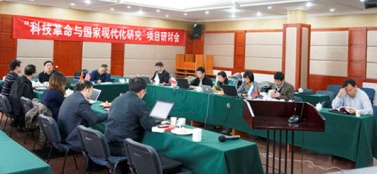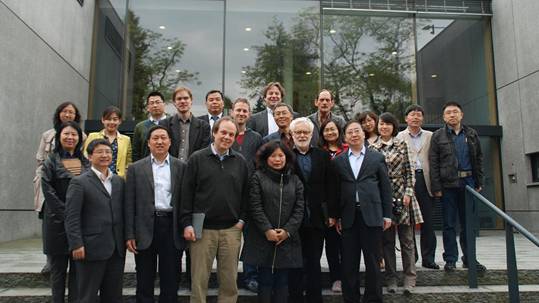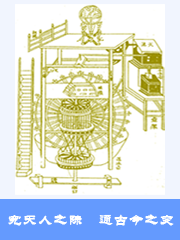- “Scientific Revolutions, Technological Revolutions and the Modernization of Nations”
In today's China, the topic of “Scientific Revolutions, Technological Revolutions and the Modernization of Nations” is of particular academic and practical significance. In the latter half of the 19th century, the rapid expansion into East Asia of industrialized Western countries delivered an unprecedented blow to China. Following its failure to reform its social, cultural and political systems, China was engulfed by revolutions in the first decades of the 20th Century. Since then, Chinese intellectuals have debated and striven to 'save the nation by industry, by science and by modernization'. Industrialization and 'modernization' have gradually become main goals of the nation, with the government identifying science and technology as 'key factors' for their realization. The past 30 years, have seen especially keen discussion of topics such as scientific revolutions and modernization in China, while modernization, scientific revolutions and technological revolutions are buzz words in contemporary Chinese publications and the media.
While some progress has been made in China towards understanding these concepts and processes, and the relationships between them, this is still inadequate, sometimes rather vague and even inaccurate. Therefore, it is important to get a deeper and more accurate understanding of the connotations and varied routes and models of scientific and industrial revolutions and modernization by studying the transformations of modern science and technology, as well as the modernization processes of different nations. Such research can also bring much-needed new knowledge for the Chinese people to “understand the world”.
Based on existing international research, and taking Italy, Britain, France, Germany, Russia, the United States, Japan and China as case studies, this program is designed to combine history of knowledge with social history, and to conduct national historical studies and trans-national comparative studies.
Leading scholars in this program include professors from home and abroad such as BAO Ou, FANG Zaiqing, LIU Yidong, TIAN Miao, WANG Zuoyue, ZHANG Baichun, ZHOU Cheng, etc., and research teams consisting of more than 20 middle-aged scholars, young scholars and graduate students.
Since late 2010, the eight research groups in this project have been developing their research framework and selecting the main content. In May 2012, most of the research team members paid a visit to MPIWG, where they discussed issues, such as the research framework, main content, research perspectives and key sources, with historians of S&T from MPIWG, who gave advice on revisions. Based on this, a new research outline was shaped and the research protocols were improved.
As the research framework was being drawn up, each research group worked hard to collect relevant sources. Most monographs will be of 4 or 5 chapters, for which outlines have been produced, and so far first drafts of 1 or 2 chapters have been completed. On the suggestion of CAS administrative departments, the research teams published an article, “Scientific Revolutions, Technological Revolutions and Modernization”, in which some preliminary ideas were presented. The article was collected into Vision 2020: Emerging Trends in Science & Technology and Strategic Options for China, a CAS policy-consultation report, which was published in April 2013 by the Science Press.

Workshop hold in November, 2012

Joint Workshop with Scholars of MPIWG, May, 2012




